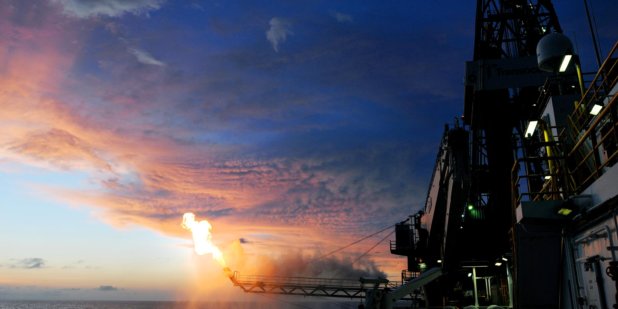- About
- Topics
- Story
- In-Depth
- Picks
- Opinion
- News
- Donate
- Signup for our newsletterOur Editors' Best Picks.Send
Read, Debate: Engage.
Colonel Hammed Ali, head of Nigeria Customs is a very disciplined man. His demeanour oozes an eerie-like charisma that is hard to find among political appointees in Nigeria’s federal bureaucracy. He once stood down a delegation from the National Assembly, the country highest legislative body. Under his commando-style leadership, revenues from the customs service ― a national parastatal that is renowned for corrupt practices, have been multiplied by many folds. But now his past political leanings cast a dark shadow on his current professional achievements. Ali belongs to a class of Nigerians who were closely aligned to the brutal regime of Sani Abacha, the military general who ruled Africa’s most populous country with an iron fist in the mid-90s.
Several folks like him have crawled back into the limelight upon restoration of civilian rule in 1999. Today, they occupy prime offices in Abuja’s labyrinthine corridors of power. Oftentimes, they have transmogrified themselves from soldiers into lawmakers, assuming positions of authority under Nigeria’s current democratic dispensation. Yet the ghost of Ken Saro-Wiwa keeps pursuing them. Saro-Wiwa remains the face of the struggle of the Ogoni people, an ethnic grouping in the oil-rich Niger Delta basin of Nigeria despite more than two decades since his demise. He was executed by the military dictatorship led by General Sani Abacha in 1995 due to his relentless protest of oil pollution by Shell in his community.
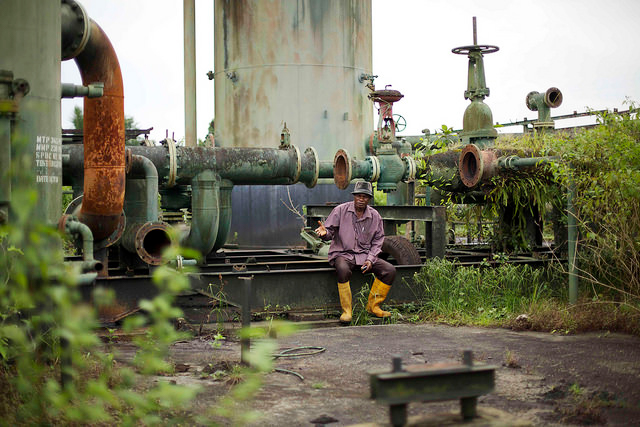
Nigeria has been independent from British colonial rule for almost 60 years. At independence in 1960, the British monarch, Elizabeth II was still head of state but legislative authority was the prerogative of the bicameral parliament. Three years later, country was adopted republican democracy ― severing the last vestiges of colonial sovereignty from its constitution. Despite the proclamation of the ‘Federal Republic’, Nigeria still adopted British conventions, thinking and even niceties in its government. For instance, it would take more than a decade before the decision to relocate the federal capital to a more central territory was taken. It would take another decade or so before the relocation was eventually made, from Lagos to Abuja.
Till today, Nigeria barristers are still required to wear the wig at their call to the bar. A practice that generated much debate lately when a Muslim lawyer refused to wear the wig. She had opted for the hijab instead. People argued that the Nigerian legal community should promote diversity in its ranks, by following what now obtains in the United Kingdom where we obtained our legal traditions from originally. While this thinking is certainly progrsssive, it is flawed in the sense that why must we always look to the West for leaderuship on all matters?
"The West has definitely failed us in many regards as evidenced by the ruling of the British court in the case brought against Shell. Why can’t we pursue legal against Shell in Port Harcourt or Lagos?"
Indigenes in indigence
Indigenous activists like Nubari Sataah, who is based in Port Harcourt, the biggest city in the Niger Delta, cast doubts on the motive of the government for the Ogoni people.
fairplanet: The death of Ken Saro-Wiwa shook the world. What do you have to say about how the Nigerian government executed him?
Nubari Sataah: The death of Ken Saro-Wiwa took the Ogoni people backward for more than a decade. He was one of the emerging leaders of the Ogoni. Now, it’s become very obvious that everything was staged. I just finished reading his detention diary and you’d see several instances of his mistreatment at the hands of security officers. He was moved from court to court, tried for different offences from time to time.
The Nigerian government says the clean-up of the polluted areas of Ogoniland has begun. Even the Vice-President Yemi Osinbajo came to Ogoni to flag off the exercise. What can you say has happened between then and today?
About three weeks ago, I went to my village, Bomu, in one of the local government areas that make up Ogoni. At one of the water pumps in the village, the government had erected a signpost warning the people not to use the water. I first saw that signpost in 2011 when I went home for vacation. Seven years later, it still stands there. And there has been no alternative source of drinking water. In the UNEP report, some emergency measures were recommended, stating that the government needed to do some important things such as providing drinkable water to affected communities, before the clean-up is kicked off. The same report found that levels of benzene, a carcinogen, in the groundwater is far higher than World Health Organisation (WHO) standards for safety.
Yet people have been drinking that water for decades and the government has not taken steps to do something about it. Before the clean-up launch, there was a stakeholders’ meeting at the Hotel Presidential [in Port Harcourt]. The former minister said they were launching the clean-up and that she couldn’t say precisely when the exercise would start. Now, when citizens who are unaware of the reality on ground see affected communities protesting government inaction, they wonder why the youths are restive. The word on the street is that the clean-up has been launched, and government keep snapping photographs of stakeholders’ meetings as sign of progress. I know it’s going to take time but then, there are things they should do first.
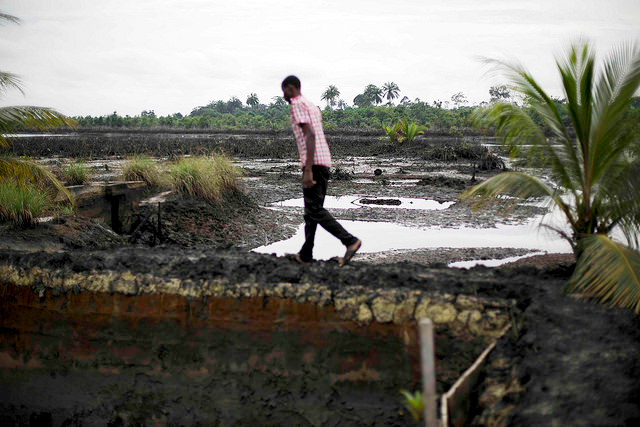
You’ve described the impact of oil pollution on your village, and of course your community is part of Ogoniland but personally, how has the exploitation of the resources of Ogoniland affected you?
Once, my father and I were reminiscing on the loss of Ken Saro-Wiwa and all of a sudden my father began to sob. It suddenly dawned on him that he could have been arrested the same day security officers raided the community and arrested Saro-Wiwa and the other protesters. At that moment, he felt he could have died with the struggle had it not been that he was away in a neighbouring community. So, the crisis disrupted the peaceful nature of the Ogonis. In fact, the government instigated inter-communal squabbles between the various communities in Ogoniland, just to stop the campaign of the protesters.
In May 2018, current Nigerian President Muhammadu Buhari participated in the Commonwealth Head of Government Meetings (CHOGM) in London, the British capital. At a period where Brexit is forcing the United Kindgom to look for economic ties globally, away from continental Europe, this conference is somewhat historic for Nigeria. Nigeria is one of only four countries to have ever been suspended from the Commonwealth, the others being Pakistan and Fiji, on two separate occasions and Zimbabwe, which later withdrew from the fold. The official website of the Commonwealth still carries that decades-old ignominy action of General Sani Abacha and his military cronies.
It says: “Two days after political activist and writer Ken Saro-Wiwa was executed with ten others in 1995, the Commonwealth Ministerial Action Group (CMAG) suspended Nigeria from the Commonwealth. In practical terms this suspension excluded Nigeria from receiving any new Commonwealth technical assistance ― such as agricultural training which took place in 1993 ― and also prevented government representatives from participating in inter-governmental Commonwealth meetings and events. This suspension also acted as a public declaration from the Commonwealth to the Nigerian government and the international community, condemning the undemocratic and human rights abuses which reverberated across the world.”
While the Commonwealth from its London headquarters were denouncing the actions of General Abacha, the recently appointed executive chairman, Muhammadu Buhari of the newly established Petroleum Trust Fund, a kind of sovereign wealth purse into which excess revenues from oil prices increases could be channelled for further deployment for development projects in such critical areas like education and infrastructure, was settling into his position, enjoying the perks of office. Stories abound of the mismanagement that took place under Buhari’s watch and how he funnelled much of the financial subventions of the trust fund into his part of the country. Today, Britain seems to have forgotten the errors of the past and the British Prime Minister is eager to do business with anyone with a market large enough to secure her country’s economic future.

Pariah to Messiah
Lanre Suraj, a human rights advocate and ranking officer of the Human and Environmental Development Agenda (HEDA), based in Lagos says the punitive measures were in order and right.
fairplanet: Do you think Nigeria has made progress in terms of human rights since the restoration of democratic governance in 1999 after decades of dictatorship?
Lanre Suraj: Today, Nigerians are able to elect leaders of their choice. Although, at times, the electoral process is marked by rigging, citizens still express their rights, choice of whoever they want through the ballot. Yet are still experiencing some infractions such as the detention of El Zarkazy of the Shiite movement, a Muslim cleric who has been detained by government despite public outcry. You’ll also understand that some of the rights we gained at the national level are eroded at the subnational level. It’s difficult for you to criticize the state governments, and almost impossible to aspire to political office ― either local government chairman or councillors, commissioners and all.
Without some elements of terror through control of thugs, it’s near impossible to attain these offices at the state levels due to the anomalies in the system. That’s civil and political rights but also on the freedom of the press, Nigerians have enjoyed liberties since 1999. On social and economic rights, there’s practically nothing that has improved in this regard. Much has been done in terms of providing free education from the primary to secondary level but the standards are dismal. You don’t have qualitative education, you don’t have the facilities, and teachers are not paid. The same thing goes for healthcare, roads, and electricity.
In 1995, General Sani Abacha executed Ken Saro-Wiwa. How did you feel about that injustice by the military government and that episode of Nigeria’s history?
I wept when that happened. Some of us were involved in the advocacy for the freedom of Ken Saro-Wiwa and the advocacy for the emancipation of the people of the Niger Delta and the degradation of their environment as perpetuated by the oil multinationals, which as at that time and up till now, abdicated their corporate social responsibilities to the host communities where they operate. They also furthered the disintegration of the people by sponsoring all manners of internal wrangling and infightings. Leaders of the people were targeted for character assassination and this was done in active connivance with the military which is the whole essence of what led to the killing of Ken Saro-Wiwa. That was blood on the hands of Abacha.
President Buhari appointed Colonel Hameed Ali as the comptroller-general of the Nigeria Customs, the same person who served on Abacha’s military tribunal that sentenced Saro-Wiwa to death. What do you make of that scenario? In some parts of the world, if you’ve been involved in human rights abuses you are effectively proscribed from participating in governance at the highest levels.
President Jonathan also appointed another colonel on the tribunal. It was a public outcry at that time. Unfortunately for us, the political landscape of Nigeria today is an extension of the military. It is the same class of politicians that supported the military that is still running the current system. Nothing fundamental has changed.
At a recent media event, I learned about an American professor who has been revisiting cases of extrajudicial killings of African-Americans in the Deep South of the United States from a century ago. In Nigeria, similar cases abound such as Ken Saro-Wiwa and Dele Giwa. Why can’t human rights lawyers and civil society activists like yourself do the same for Nigeria so we don’t repeat the same mistakes in the future?
This is a very good idea. But the problem is very simple and straightforward. The American professor you speak of is revisiting issues that occurred a century ago. So you see, it took them many years to revisit those issues. Secondly, the issues we are confronted with in Nigeria today are even more complex that those of the past. It is something that will definitely happen but its timing cannot be predicted.
Shell was dragged to court by some Niger Deltans but the case was thrown out. Still in Italy another case is ongoing. Why can’t we pursue those legal actions in our own courts?
The cause is rooted in our governance structure because some of the elements in our government are still in active conspiracy with the multinationals. Due to the evolution of our own internal regime, it takes an eternity to conclude such cases. In the other trial case, Milan in Italy, my organisation is one of those that is responsible for dragging Shell and Agip to court. We’re part of the team that wrote the petition, in part because of the frustration in getting things going in Nigeria.
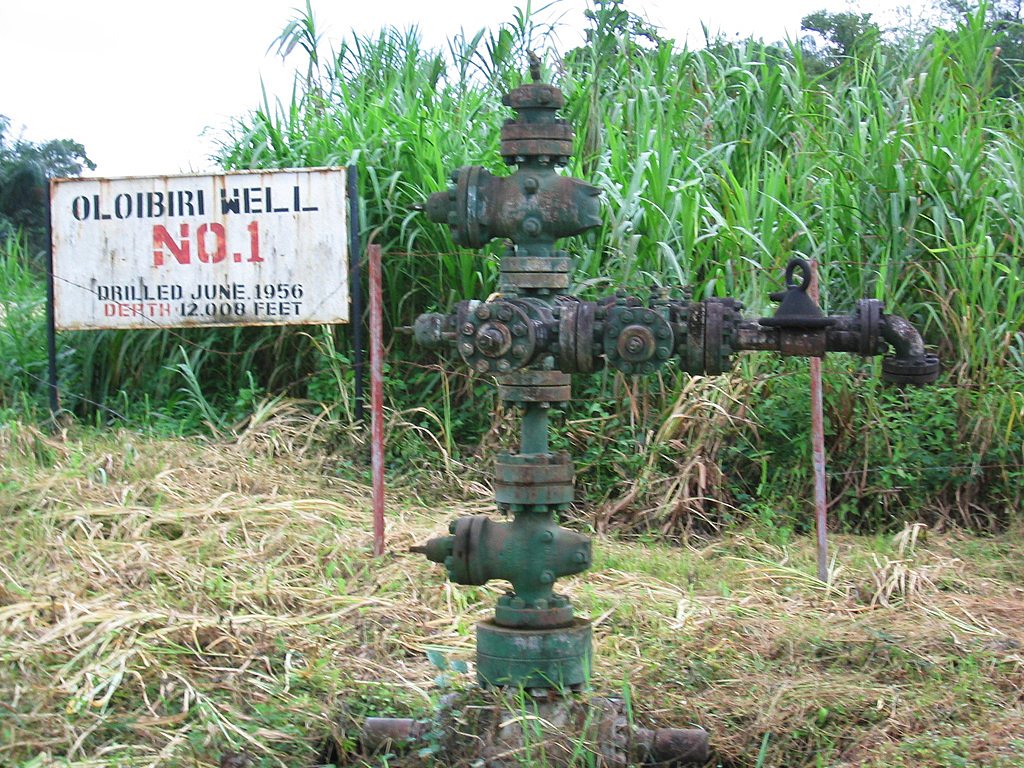
What do you think the future holds for the people of the Niger Delta?
Justice is going to come their way. It’s certain and definite. It might take time but it is surely going to happen and that process is already ongoing and we’re going to be part of that process. My organisation and some of our partners are reviewing the basis for throwing out the case in the UK court and we’ve also found some very relevant areas of operations and the law that can be used for appeal to the Supreme Court in the UK. I’m very positive that things will turn out well.
Although Lanre Suraj speaks of the slow procedural working of Nigeria’s legal system, what he may not be aware of it that the Italian judicial system is as terrible. But in terms of securing justice in the long run, all hope may not be lost. In the past, I have written about how difficult it is to prosecute former Nigerian heads of state because they are till retained as members of the Council of State. Perhaps, pursuing legal procedures within Africa might be the solution as the case of former Chadian President Hissène Habré who found guilty of war crimes by a Senegalese court in Dakar.
Adamu Abdulkarim is a social commentator and a doctoral candidate at the Usmanu Danfodio University in Sokoto. He thinks without proper institutions, justice will continue to elude most Africans.
What do you think of the killing of Ken Saro-Wiwa? Has his memory been adequately honoured by Nigerians?
Adamu Abdulkarim: It was wrong and I totally condemned it. The Abacha regime was the worst thing to have happened to Nigeria’s march to nationhood. I was happy to read about the action taken by the United Kingdom by suspending Nigeria from the membership of Commonwealth of Nations as a result of the killing of Ken. Ken’s people were robbed of their humanity through careless and destructive activities of oil companies hence their farmlands were unfit to support farming activities and their water inhabitable for aquatic life.
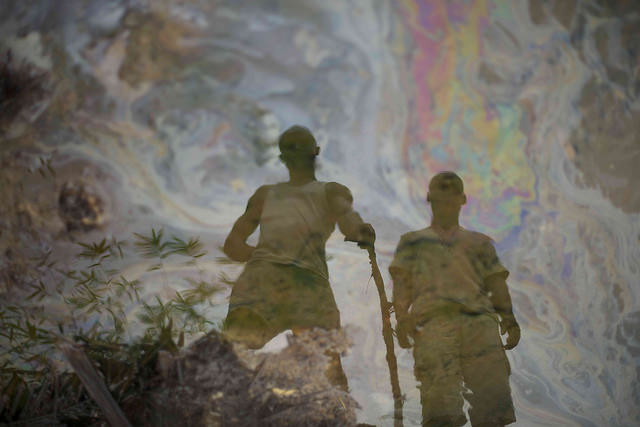
Ken saw a cause worth standing and even dying for. He stood for his people and eventually paid the ultimate price with his life. Ken’s display of inimitable courage in the face of a tyrannical regime was not adequately honoured by Nigerians and we should all be ashamed for our failure to give honour to whom was much deserved. Ken’s martyrdom should have sparked a purposeful movement to see to the end of continuous degradation and destruction of our environment by oil companies. I am of the opinion that there should be celebratiosn of Ken’s life to raise awareness about our nonchalant attitudes toward the sustainability of our environment.
Why can’t we try human rights abuses in our own country rather than taking the cases to international courts at The Hague?
I think this is largely due lack of strong and independent institution in our clime. Our judiciary is a mere extension of the executive wing of government in our democracy. They mostly do the bidding of the prevailing government. And most human right abuses are perpetrated by people with some level of authority. Unfortunately, the systems were not adequately prepared to punish high ranking officials.
You can say, with some level of certainty, it will be difficult to prosecute high ranking officials in any African country because of Africa’s penchant leaning to a primordial affiliation of ethnicity and religiosity. The perpetrator of the human right abuses will quickly whip off sentiment and appeal to the emotion of his native people. In a split of seconds, the narration will change that he is being haunted because he is a member of so and so group.
The former Chad dictator was tried in Senegal. Is bringing bad African leaders to justice in other African countries the way forward?
I don’t think so. In the first place, there is no consensus on defined goals and aspirations among African countries. So I cannot see how a divided house can support and ensure the administration of justice. What I see for African countries is to develop strong institutions that can checkmate the excesses of their citizens regardless of their status.
How can we avoid the jungle justice that was so typical of the military regimes of the past? (Consider El Zakzazy’s illegal detention).
Like you rightly said “typical of the military regimes”, I think we are gradually getting over the remnants of the military regimes. Though the pace may be sluggish, but I believe we will get there. With democracy getting entrenched in many African countries, there will be gradual enforcement of checks and balances to checkmate the excesses of African despotic leaders. The case of El-Zakzaky is really a litmus paper test of President Buhari’s claim to being a “born-again-democrat”. There are still remnants of dictatorial tendencies in Buhari’s body language.
The continued detention of El-Zakzaky as you rightly called it, is illegal. Verdict upon verdicts by a court of competent jurisdiction has found him not guilty, and have asked Federal Government to set him free but the Buhari-led government disobeyed all the court injunctions. So, in a sense, we cannot boldly say, we have come of age to have passed ‘Jungle Justice’. It is still with us. However, I am of the opinion that we can avoid that through building institutions strong and independent enough to enforce law and order.
